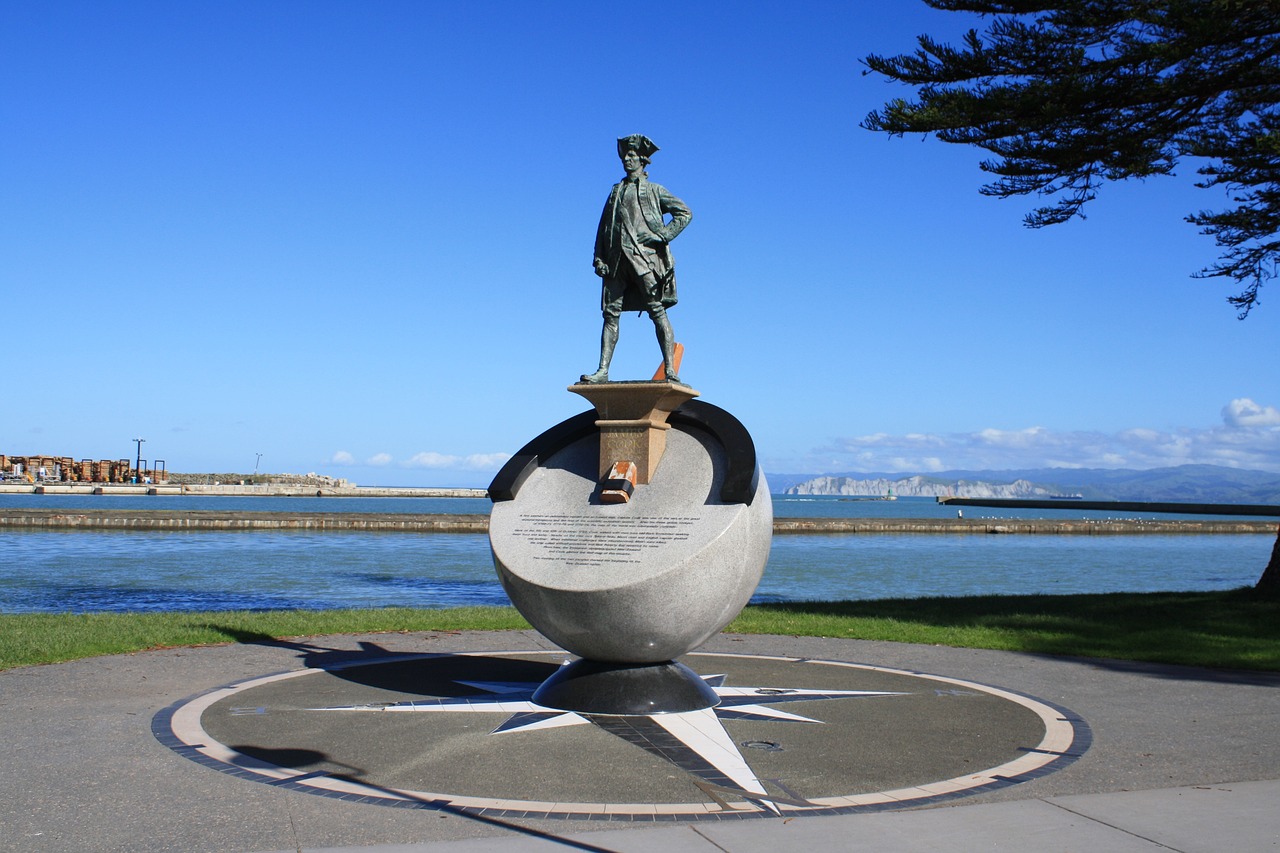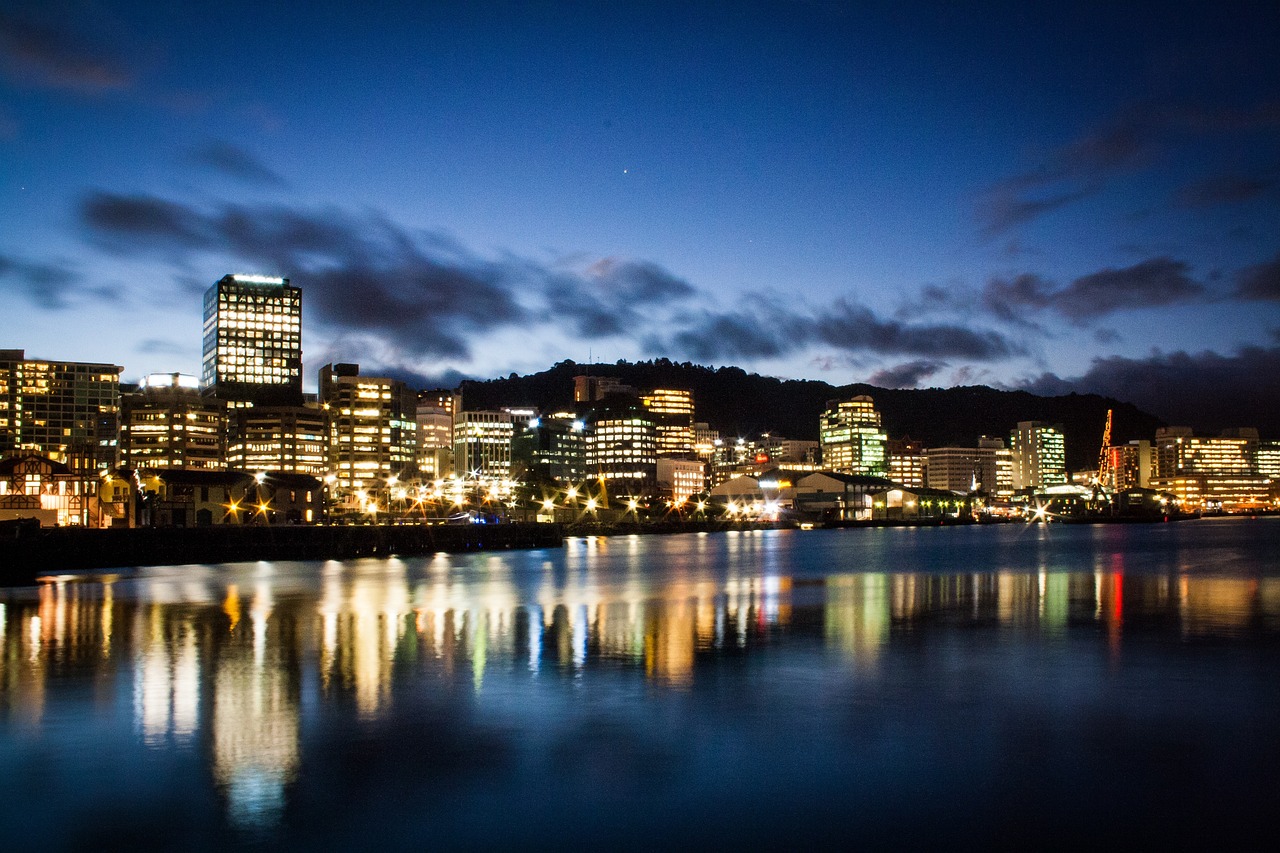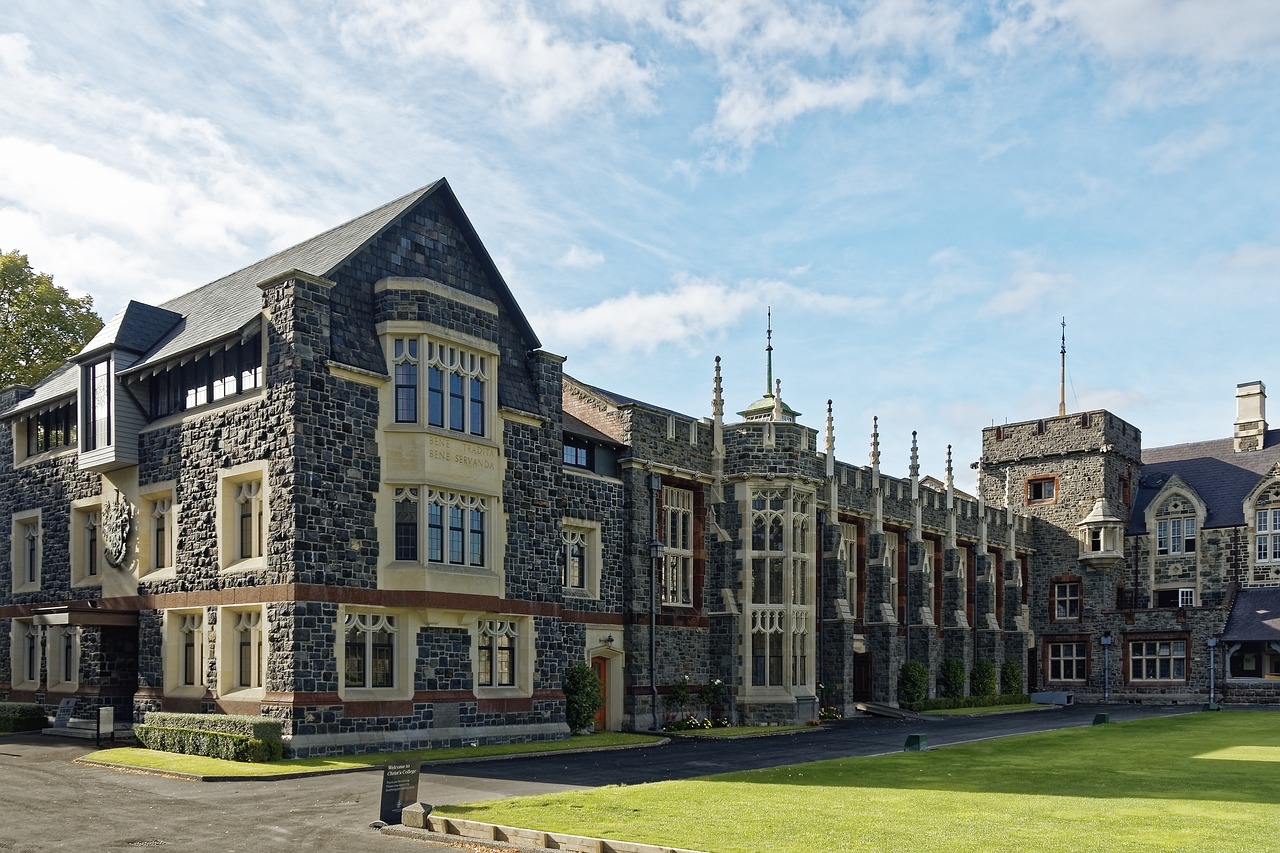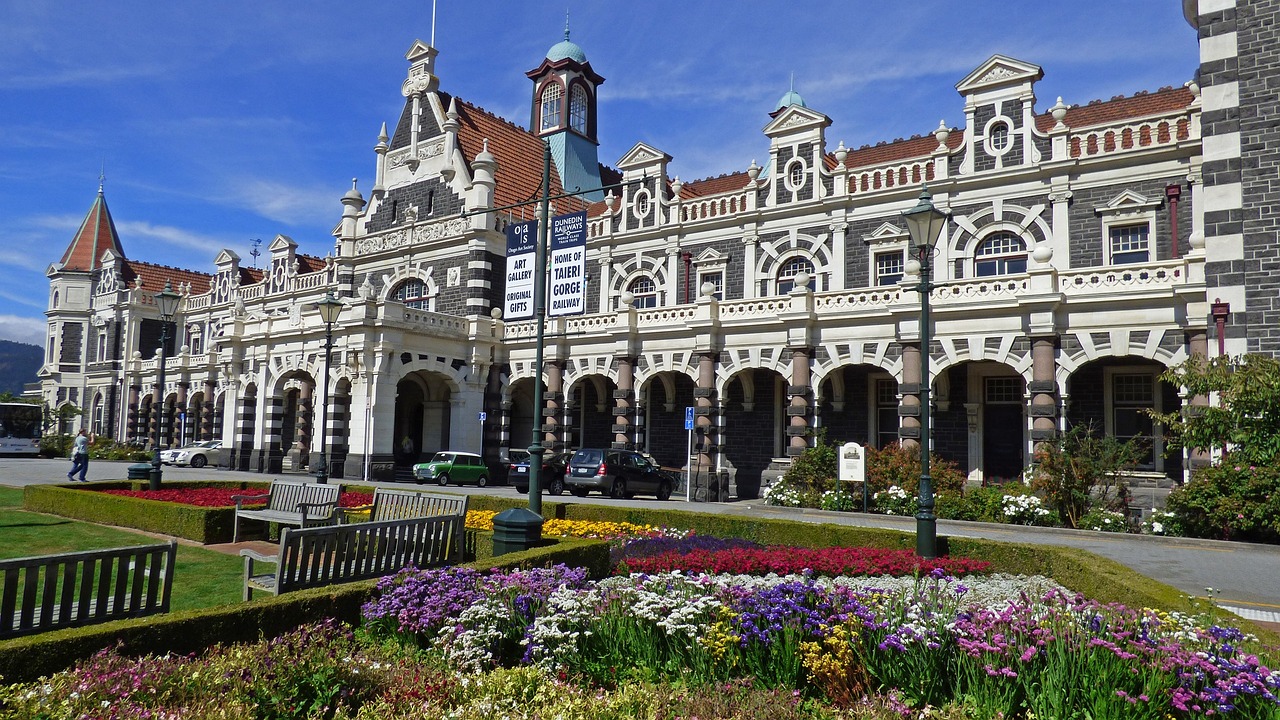Gisborne is a city located on the east coast of New Zealand’s North Island. It is the largest settlement in the Gisborne District and is sometimes referred to as the “East Coast” or “East Cape” of New Zealand. Gisborne is known for its stunning beaches, rich Maori culture, and for being the first city in the world to see the sun rise each day.
Short History
Gisborne is situated in the heart of Tairāwhiti, the traditional home of the Māori people. The region was named after the legendary Māori navigator, Tairāwhiti, who is said to have guided the first Māori canoes to New Zealand.
In 1769, the famous British explorer, Captain James Cook, made his first landing in New Zealand in what is now known as Gisborne. This event marked the beginning of European contact with the Māori people.
Gisborne was officially established as a town in 1870, and it quickly grew into an important center for farming and forestry. In the early 20th century, the region became known for its thriving fruit-growing industry, particularly for its production of citrus fruits.
Today, Gisborne is a vibrant city with a rich cultural heritage. It is home to many important historical sites and museums that showcase the region’s Māori and European history, as well as its natural beauty and unique cultural traditions.
Architecture
Gisborne’s architecture is a mix of both historic and modern styles.
Many of the city’s historic buildings date back to the early 20th century, when Gisborne was experiencing a period of rapid growth and development. These buildings often feature a mix of architectural styles, including Art Deco, Gothic Revival, and Classical Revival.
One of the most notable examples of historic architecture in Gisborne is the War Memorial Theatre, which was built in the 1950s in the Art Deco style. The theatre has since been restored to its former glory and remains an important cultural landmark in the city.
In recent years, Gisborne has seen the construction of many new buildings that reflect modern design trends. These buildings often feature clean lines, simple geometric shapes, and a focus on sustainability and energy efficiency.
Overall, the architecture of Gisborne reflects the city’s unique blend of history and modernity, and showcases its commitment to preserving its heritage while embracing innovation and progress.
Museums and Galleries
Gisborne is a vibrant city, known for its stunning beaches, rich Maori culture, and important historical sites. The city is home to a wide range of museums and galleries that showcase Gisborne’s unique heritage and cultural traditions.
- Tairāwhiti Museum: Located in the heart of Gisborne, the Tairāwhiti Museum features a diverse collection of exhibits that explore the region’s Māori and European history.
- Gisborne Railbike Adventures: This unique museum offers visitors the chance to explore the region’s railway history by pedaling a custom-made railbike along a scenic track.
- Eastwoodhill Arboretum: This living museum is home to more than 4,000 different species of trees and plants from around the world.
- Te Poho-o-Rawiri Marae: This traditional Māori meeting house is an important cultural landmark in Gisborne, and offers visitors a chance to experience the region’s rich Māori heritage.
- Gisborne i-SITE Visitor Centre: This museum and visitor center offers a wide range of exhibits and interactive displays that showcase the region’s natural beauty and unique cultural traditions.
- The Gisborne Vintage Machinery Society: This museum is home to an impressive collection of vintage machinery and farm equipment, offering visitors a glimpse into Gisborne’s agricultural history.
- East Coast Museum of Technology: This museum celebrates Gisborne’s industrial heritage, with exhibits showcasing the region’s history of innovation and technological progress.
- Sunshine Brewery: This microbrewery offers visitors a chance to learn about the art and science of beer brewing, with tours and tastings available on-site.
Gisborne offers a wealth of museums and galleries that showcase the city’s unique blend of history, culture, and innovation. Whether you’re interested in exploring the region’s Māori heritage, learning about its agricultural and industrial history, or simply enjoying some delicious craft beer, there’s something for everyone in Gisborne’s museums and galleries.
Landmarks and Monuments
Gisborne is a city with a rich cultural heritage and many important historical landmarks and monuments. Visitors to Gisborne can explore a wide range of sites that showcase the city’s unique blend of Māori and European history.
- Cook Landing Site: Located in Kaiti Beach, this monument commemorates the first landing of Captain James Cook in New Zealand in 1769.
- Te Poho-o-Rawiri Marae: This traditional Māori meeting house is an important cultural landmark in Gisborne, and features stunning carvings and artwork.
- Titirangi Reserve: This scenic reserve offers visitors breathtaking views of the city and the surrounding coastline, as well as the opportunity to explore native flora and fauna.
- Tairāwhiti Museum: This museum features a wide range of exhibits that explore the region’s rich history and cultural traditions.
- Kaiti Hill: This landmark offers visitors stunning panoramic views of the city and the ocean, as well as the opportunity to explore historic sites like the Cook Landing Site and the Kaiti Beach Cemetery.
- Captain Cook’s Statue: This statue of Captain Cook is located in Gisborne’s city center, and serves as a reminder of the city’s European heritage.
- Tikitiki Church: This beautiful church, located in the nearby town of Tikitiki, is a stunning example of Māori architecture and features intricate carvings and artwork.
- Gisborne War Memorial: Located in the heart of the city, this monument honors the local soldiers who served and died in World War I and II.
Gisborne is home to a wide range of important landmarks and monuments that showcase the city’s unique blend of Māori and European history, as well as its natural beauty and cultural heritage. From the Cook Landing Site to the Tikitiki Church, there’s something for everyone to explore and enjoy in Gisborne’s many iconic sites.
Parks and Green Spaces
Gisborne is a city, known for its stunning natural beauty and outdoor attractions. The city is home to a wide range of parks and green spaces that offer visitors the chance to explore the region’s unique flora and fauna, as well as its rich cultural heritage.
- Titirangi Reserve: This scenic reserve is located on a hilltop overlooking the city and the ocean, and offers visitors stunning views as well as walking tracks and picnic areas.
- Te Poho-o-Rawiri Gardens: These beautiful gardens are located next to the Te Poho-o-Rawiri Marae and feature a wide range of native and exotic plants, as well as traditional Māori artwork.
- Waikanae Beach Reserve: This popular beachside park offers visitors the chance to relax on the sand, swim in the ocean, or explore the nearby walking tracks and picnic areas.
- Okitu Coastal Walkway: This scenic walking track follows the coastline from Okitu to Te Kuri, offering visitors stunning views of the ocean and the surrounding landscape.
- Makarori Point: This scenic reserve is located at the end of Makarori Road and offers visitors the chance to explore a unique coastal ecosystem, as well as enjoy swimming and surfing at the nearby beach.
- Gisborne Botanical Gardens: These beautiful gardens are home to a wide range of exotic and native plants, as well as a duck pond, walking tracks, and picnic areas.
- Muriwai Recreation Reserve: This popular park is located on the banks of the Waimata River and features a range of recreational facilities, including a playground, sports fields, and picnic areas.
- Kaiti Hill Reserve: This iconic landmark offers visitors stunning views of the city and the ocean, as well as the opportunity to explore historic sites like the Cook Landing Site and the Kaiti Beach Cemetery.
Gisborne is home to a wealth of parks and green spaces that offer visitors the chance to explore the region’s unique natural beauty, as well as its rich cultural heritage. From the stunning views of Titirangi Reserve to the relaxing beaches of Waikanae Beach Reserve, there’s something for everyone to enjoy in Gisborne’s many beautiful outdoor spaces.
Shopping Districts
Gisborne is also known for its vibrant cultural scene and wide range of shopping and dining options. The city is home to several unique shopping districts that offer visitors the chance to explore a wide range of local boutiques, galleries, and artisanal shops.
- Gladstone Road: This popular shopping district is located in the heart of Gisborne and features a wide range of local and international retailers, as well as cafes, restaurants, and bars.
- Peel Street: This pedestrian-friendly street is home to a variety of independent boutiques, artisanal shops, and galleries, offering visitors a chance to explore Gisborne’s unique arts and crafts scene.
- Grey Street: This historic street is located in the heart of Gisborne’s city center and features a range of local and international retailers, as well as cafes, bars, and restaurants.
- Farmers Market: Held every Saturday morning at the Gisborne Showgrounds, this popular farmers market features a wide range of local produce, artisanal goods, and handcrafted items.
- Inner Harbour Village: This waterfront shopping district is home to a range of boutique shops and galleries, as well as cafes and restaurants offering stunning views of the harbor.
Gisborne is home to a variety of unique shopping districts that offer visitors the chance to explore the city’s vibrant cultural scene, as well as its rich history and natural beauty. Whether you’re looking for locally made crafts, fresh produce, or the latest fashion trends, there’s something for everyone in Gisborne’s many shopping districts.
Food and Drink
Gisborne is known for its thriving food and drink scene, with a wide range of local specialties that reflect the region’s unique cultural heritage and natural bounty. Here are some of the must-try food and drinks in Gisborne:
- Wine: Gisborne is one of New Zealand’s premier wine regions, known for its Chardonnay and other white wines. There are many wineries in the area that offer tastings and tours.
- Seafood: With its location on the coast, Gisborne is known for its fresh and delicious seafood, including crayfish, oysters, and paua (abalone).
- Kiwifruit: Gisborne is the heart of New Zealand’s kiwifruit industry, and visitors can try fresh, locally grown kiwifruit at the many orchards and fruit stands in the area.
- Manuka honey: This special honey, made from the nectar of the Manuka tree, is known for its antibacterial properties and unique flavor. Visitors can try and buy Manuka honey at local shops and markets.
- Craft beer: Gisborne has a thriving craft beer scene, with several local breweries offering unique and delicious beers made with local ingredients.
- Hangi: This traditional Māori cooking method involves cooking food in an earth oven, giving it a unique smoky flavor. Visitors can try hangi at many Māori cultural experiences and events in the area.
- Kūmara: This sweet potato-like root vegetable is a staple of the Māori diet, and is used in a variety of dishes in Gisborne, from soups to fritters.
Gisborne offers a wide range of delicious and unique foods and drinks to try, from its world-renowned wines to its fresh seafood and locally grown produce. Whether you’re looking for traditional Māori dishes or modern culinary creations, there’s something for everyone to enjoy in Gisborne’s vibrant food and drink scene.
Transportation
Gisborne is a relatively small city, and visitors can easily explore its many attractions on foot, by bicycle, or by car. Here are some of the best ways to move around Gisborne:
- Walking: Gisborne is a very walkable city, with many of its attractions located within easy walking distance of each other. Walking is a great way to explore the city’s unique neighborhoods and scenic parks and green spaces.
- Cycling: Gisborne has a well-developed network of bike paths and cycling routes, making it easy for visitors to explore the city and its surroundings on two wheels. Bikes can be rented from many local shops and rental agencies.
- Public transportation: Gisborne has a limited public transportation system, with a few bus routes that serve the city and its suburbs. However, most visitors find that it’s more convenient to explore the city by walking, cycling, or driving.
- Car rental: Renting a car is a great option for visitors who want to explore the region’s many attractions at their own pace. There are several car rental agencies in Gisborne that offer a wide range of vehicles, from compact cars to SUVs.
- Taxi or rideshare: Taxis and rideshare services like Uber are available in Gisborne, and can be a convenient option for visitors who don’t want to walk or drive themselves.
Gisborne offers a variety of transportation options for visitors, from walking and cycling to driving and public transportation. Whether you’re exploring the city’s many attractions on foot or taking a scenic drive along the coast, there’s no shortage of ways to get around and experience all that Gisborne has to offer.
City Safety
Overall, Gisborne is a safe and welcoming city for visitors. However, like any city, there are certain precautions that visitors should take to ensure their safety and security while exploring the area.
It is generally recommended that visitors avoid walking alone at night, especially in unfamiliar or isolated areas. Visitors should also be aware of their surroundings and keep their valuables secure, as petty crime such as theft can occur in crowded areas.
Gisborne has a low crime rate compared to other cities in New Zealand, and violent crime is rare. The city is also known for its friendly and welcoming locals, who are always happy to help visitors with directions or recommendations for local attractions.
As with any travel destination, it’s always a good idea to do some research and take appropriate safety precautions to ensure a safe and enjoyable trip. Overall, Gisborne is a safe and enjoyable destination for visitors who want to experience the natural beauty, cultural heritage, and friendly hospitality of New Zealand’s East Coast.
Expensive or Cheap
Compared to other cities in New Zealand, Gisborne is generally considered to be an affordable destination for visitors. However, as with any travel destination, the cost of visiting Gisborne will depend on a number of factors, including the time of year, the type of accommodation, and the activities you choose to participate in.
Accommodation in Gisborne can range from budget-friendly hostels and motels to upscale hotels and luxury lodges, with prices varying depending on the level of comfort and amenities offered. Visitors can also save money by cooking their own meals or opting for budget-friendly dining options like food trucks and local cafes.
Many of the city’s top attractions, such as its parks and beaches, are free to visit, while others, like museums and cultural experiences, may require an admission fee. However, compared to other cities in New Zealand, these fees are generally considered to be reasonable.
While Gisborne may not be the cheapest travel destination in New Zealand, it is still a relatively affordable option for visitors who want to experience the natural beauty, cultural heritage, and friendly hospitality of the East Coast.
Best Time to Travel
The best time to travel to Gisborne is during the summer months of December to February, when the weather is warm and sunny with average temperatures ranging from 20°C to 27°C (68°F to 81°F). This is the peak tourist season in Gisborne, with many visitors coming to enjoy the city’s stunning beaches, outdoor activities, and cultural events.
However, the shoulder seasons of September to November and March to May can also be a great time to visit Gisborne, with fewer crowds and mild, comfortable temperatures ranging from 15°C to 22°C (59°F to 72°F). This is a great time to explore the city’s many attractions and enjoy outdoor activities like hiking and cycling.
The winter months of June to August are the quietest time of year in Gisborne, with cooler temperatures ranging from 9°C to 16°C (48°F to 61°F) and occasional rainfall. However, this can be a great time to experience the city’s cultural attractions and indoor activities, like museums and galleries.
Overall, the best time to travel to Gisborne will depend on your personal preferences and travel interests. Whether you’re looking for outdoor adventures, cultural experiences, or simply a relaxing beach vacation, there’s something for everyone to enjoy in Gisborne, no matter what time of year you visit.
Date Ideas
Gisborne is a romantic and charming destination, with a wealth of activities and attractions that make it the perfect place for a memorable date. Here are some date ideas to consider when visiting Gisborne:
- Enjoy a picnic at Titirangi Reserve: Pack a basket of local goodies and head to this scenic reserve for a romantic picnic with stunning views of the city and the ocean.
- Take a sunset stroll on the beach: Gisborne is home to several beautiful beaches, including Waikanae Beach and Wainui Beach, where you can enjoy a romantic walk along the shoreline at sunset.
- Visit a local winery: Gisborne is known for its world-class wineries, where you can enjoy a romantic tasting experience and sample some of the region’s best wines.
- Take a scenic drive: Rent a car and take a scenic drive along the coast, stopping at lookout points and hidden beaches along the way.
- Take a hot air balloon ride: See Gisborne from a new perspective with a romantic hot air balloon ride over the city and its stunning surroundings.
- Visit a local art gallery: Gisborne is home to several art galleries, showcasing the work of local and international artists, and offering a perfect backdrop for a romantic date.
- Enjoy a romantic dinner: Gisborne has a wide range of dining options, from upscale restaurants to cozy cafes, offering the perfect setting for a romantic dinner for two.
- Attend a local festival: Gisborne is home to several cultural and music festivals throughout the year, providing the perfect opportunity to enjoy a fun and memorable date.
- Take a scenic hike: Gisborne is surrounded by beautiful natural landscapes, including the Te Urewera Rainforest and the Rere Falls Trail, offering the perfect setting for a romantic hike.
- Go on a horseback riding adventure: Experience the beauty of Gisborne’s countryside on a romantic horseback riding adventure, exploring the region’s stunning scenery and hidden trails.
Gisborne offers a wide range of romantic date ideas, from scenic drives and beach walks to wine tastings and art galleries. Whether you’re looking for adventure, relaxation, or a combination of both, there’s something for everyone to enjoy in this charming and romantic destination.
Fun and Interesting Facts
Gisborne is a beautiful and vibrant city located on the East Coast of New Zealand’s North Island, known for its stunning natural landscapes, rich cultural heritage, and friendly locals. Here are 10 fun and interesting facts about Gisborne:
- Gisborne is the first city in the world to see the sun rise each day, due to its location on the easternmost point of mainland New Zealand.
- The city is home to several historic sites, including the Cook Landing Site, where Captain James Cook first made landfall in New Zealand in 1769.
- Gisborne is known for its thriving food and drink scene, with a range of local specialties like kiwifruit, seafood, and Manuka honey.
- The city is surrounded by stunning natural landscapes, including beaches, forests, and rivers, offering visitors the chance to explore New Zealand’s unique flora and fauna.
- Gisborne is a premier wine region, known for its Chardonnay and other white wines, and home to many wineries and vineyards.
- The city is a hub for Māori culture and heritage, with many cultural experiences and events that offer visitors the chance to learn about New Zealand’s indigenous people and their history.
- Gisborne is home to several world-renowned surf breaks, including Makorori Point and Wainui Beach, making it a popular destination for surfers from around the world.
- The city hosts several cultural and music festivals throughout the year, including the Rhythm and Vines festival, one of New Zealand’s largest New Year’s Eve celebrations.
- Gisborne is a popular destination for outdoor enthusiasts, with many opportunities for hiking, cycling, and other outdoor activities.
- The city is home to a friendly and welcoming community, known for their hospitality and love of the outdoors.
In conclusion, Gisborne is a unique and charming destination that offers visitors the chance to experience New Zealand’s natural beauty, cultural heritage, and friendly hospitality. From its stunning sunrises and world-renowned wines to its rich history and outdoor adventures, there’s something for everyone to enjoy in this vibrant and welcoming city.



